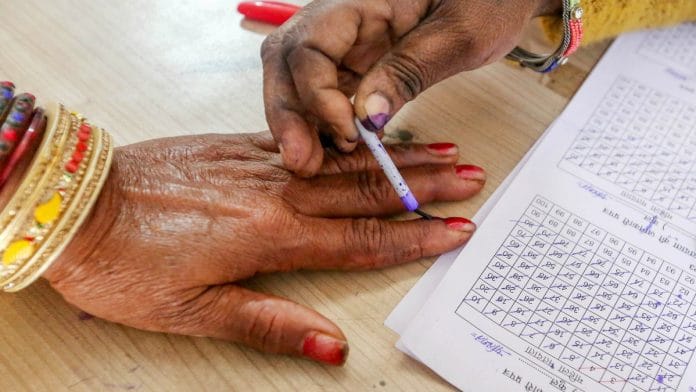Thank you dear subscribers, we are overwhelmed with your response.
Your Turn is a unique section from ThePrint featuring points of view from its subscribers. If you are a subscriber, have a point of view, please send it to us. If not, do subscribe here: https://theprint.in/subscribe/
PM Narendra Modi on 16th July 2022 addressed a gathering in Jalon district for Bundelkhand express highway inauguration. PM Modi expressed a grave concern over the practice of Raiwdi culture that some state governments are indulging during past few state elections is eroding the pillars of electoral democracy in India. The unfortunate truth of present day state electoral democracy is the exponential increase distribution of freebies in the form of cash transfers and subsidies that highlights the evident policy paralysis. India’s electoral democracy is facing a critical challenge in the era of freebies and cash transfer The recent state elections in the last few years has seen a splurge of freebies and subsidies in the essential services. We have seen a seeming trend in Madhya Pradesh, Chattisgarh, Jharkhand, Maharashtra of political parties offering cash transfers to women voters. The phenomenon of offering freebies and cash transfers has become a staple of Indian politics, with parties competing to outdo each other in promising lucrative benefits to voters. However, this trend has raised concerns about policy paralysis, fiscal sustainability, and the erosion of democratic values.
The practice of offering freebies and cash transfers has its roots in the competitive nature of Indian politics. With numerous parties vying for power, the need to attract voters has led to a proliferation of populist promises. These promises often take the form of free or subsidized essential services, such as electricity, water, and healthcare, as well as cash transfers and other benefits.
The focus on freebies and cash transfers has led to policy paralysis, as parties prioritize short-term electoral gains over long-term policy planning. This has resulted in a lack of meaningful policy discussions and solutions, as parties instead engage in a bidding war of populist promises.
Moreover, the emphasis on freebies has diverted attention away from critical issues, such as economic development, education, and healthcare. This has led to a lack of accountability among elected representatives, as voters are more focused on the immediate benefits they receive rather than the overall performance of their representatives.
The proliferation of freebies and cash transfers has also raised concerns about fiscal sustainability. The cost of providing these benefits is often borne by the state, which can lead to budget deficits and fiscal instability. This, in turn, can compromise the government’s ability to provide essential public services and invest in long-term development.
Furthermore, the reliance on freebies and cash transfers can create a culture of dependency among citizens, discouraging self-reliance and individual initiative. This can perpetuate poverty rather than empower individuals to improve their circumstances. The emphasis on freebies and cash transfers has also led to the erosion of democratic values. The selective distribution of benefits based on political considerations can create a perception of unequal treatment under the law, undermining the rule of law and the principles of equality and justice. Moreover, the focus on freebies has led to a decline in the quality of political discourse, as parties prioritize populist promises over meaningful+ policy discussions. This has resulted in a lack of accountability among elected representatives, as voters are more focused on the immediate benefits they receive rather than the overall performance of their representatives. To address these challenges, it is essential to reform the electoral system and promote a more nuanced understanding of democratic values. This can be achieved by:
Promoting transparency and accountability: Elected representatives should be held accountable for their promises and performance. This can be achieved through regular audits and evaluations of government programs.
Encouraging meaningful policy discussions: Parties should prioritize meaningful policy discussions over populist promises. This can be achieved by promoting debates and discussions on critical issues.
Citizens should be encouraged to take ownership of their lives and destinies. This can be achieved by promoting education, skills training, and entrepreneurship. Ensuring fiscal sustainability: The government should prioritize fiscal sustainability and ensure that its programs are financially viable. This can be achieved by conducting regular fiscal audits and evaluations.
India’s electoral democracy is facing a critical challenge in the era of freebies and cash transfers. The emphasis on populist promises has led to policy paralysis, fiscal sustainability concerns, and the erosion of democratic values. To address these challenges, it is essential to reform the electoral system, promote transparency and accountability, and foster a culture of self-reliance. Only then can India’s electoral democracy truly flourish.
The author Dr. Kunwar Siddarth Dadhwal is Assistant Professor, Chitrakoot School of Liberal Arts at Shoolini University, Himachal Pradesh
These pieces are being published as they have been received – they have not been edited/fact-checked by ThePrint


